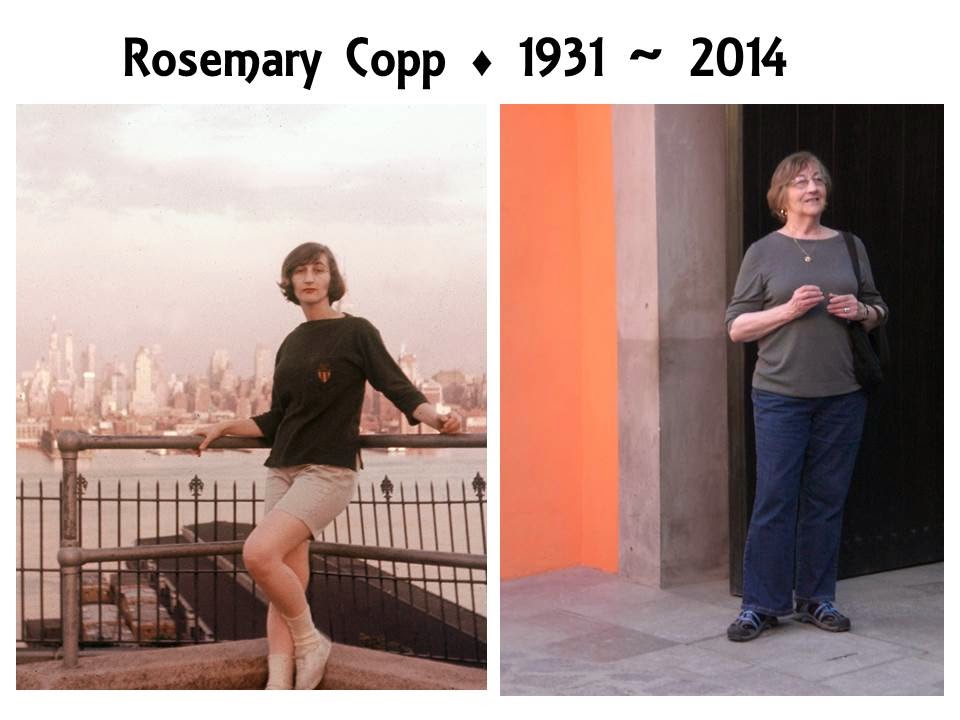Such precious quiet this morning at Casa Parque – on the outside.
Cool fall air floats through the dining room window, chills my toes.
But
on the inside I sense agitation. Can't get comfortable in my chair –
hard as a rock under my sitting bones. And inside my skin it feels
disorganized.
9:18. I’d planned to be up earlier. Dedicating my
weekends to the writing now. I’m behind on the book, I know, trying to
find my rhythm again after Mom’s passing. Writing is a practice, like
playing the piano. My fingers are out of shape.
I need
inspiration. From a New Yorker article? Flipping through an August
issue, this draws me in: ‘Finding the Words,’ the story of a
contemporary poet’s elegy to his dead son.
9:29. I read the first
page. Maybe it’s telling me: You’re not good enough to write this
Mexico memoir or this newly brewing essay about your mother’s life and
death. Such is the work of Wordsworth or Tennyson or the father, a
celebrated writer named Edward Hirsch.
Never even heard of him. Though further along in the article, a quote of
his speaks to me:
‘Why would I have Skokie in a poem? But you become
resigned. Your job is to write about the life you actually have.’
I
can do that. I do do that. I’m not formally trained nor particularly
sophisticated. But I’m still worthy, because I see inside, feel the
texture, cherish the truth and transcribe for others the universality of
experience. I try.
In a stanza of the poem to his late son, Gabriel, Hirsch writes:
Look closely and you will see
Almost everyone carrying bags
Of cement on their shoulders
That’s why it takes courage
To get out of bed in the morning
And climb into the day
So that’s why I read that article. Because I got out of bed this morning.
9:49. Now it’s time to write.
Mom’s sleeping upstairs. I hope it’s deep, rejuvenating sleep. But
how could it be. There’s nothing that could revive that broken body.
It’s already abandoned her. She tells me that at night, in bed, she has
visions of her old, strong self and she, who she is now, reaches out,
yearning to re-inhabit that body. But she cannot reach it. She awakens,
and the bloated belly that encases a cancerous liver is still there, a
nightmare from which she cannot wake-up.
Was it death that
visited me at the foot of my bed that haunted night in Mexico? I dove
out of my sleep and onto the cloaked monster screaming ‘Noooo,’ landing
on the cold cement floor of my Jimenez hovel. Awakened from the
nightmare, I crawled in the dark to my dorm fridge and found a pack of
frozen peas to put between my bruised knees. I made it through a
frightful night and went on to survive and thrive in Mexico.
But
Mom cannot dive. She can hardly sit up. She cannot walk or eat and
barely drinks, thus she cannot even eliminate. Was that the problem in
the first place, pent-up toxins in the bowel? Simply that? Her brain,
heart, lungs are perfect. She can do 20 leg lifts, she showed me
yesterday. And she has lovely toes.
She’s a model of health, proud to have never 'soaked the system,'
the only drugs she’s ever taken a light dosage blood pressure pill and
one for cholestoral. I went to the CVS today to buy her Aleve and a
stool softener. That’s the least ‘Western’ medicine can do for her.
Me,
I’m taking a G&T for the pain. Fresh mowed lawn, brilliant green
carpet laid out before me, sound of the CSX freight train tooting its
horn in the distance, the blessed wind in the trees, brushing my
shoulders. I want to cry for how beautiful this moment is.
And mom’s asleep upstairs.
You
wish you could go through this experience like this: rub your mom’s
neuropathic numb feet with the miracle cream you picked up at the
running race, comb her thin hair, scrub her bathtub and wash her bed
sheets, prepare a smoothie she forces herself to drink, out of the bendy
straw a child drinks from. 'Just two sips, mom, no three, please, for
me?'
You wish you could do this for her: reminisce quietly as BookTV blares,
about the good ole days, that illustrious trip in the station wagon to
Niagara Falls when we kids had just discovered the thrill of spitballs.
'Do you remember the one that landed in your ear!? And you, angry,
promised that was our last trip.'
My coming home with trophies, celebrating childhood triumphs in tennis,
swimming, running. Or the times I stomped up to my room, an ashamed
loser. 'But when it was a win,' Mom reminds me, I’d walk into the house
with a big smile, and she knew right away, the prize hidden behind my
back: 'Which hand?' I’d ask.
I brought one home for her
today: a wood plaque in the shape of the state of Illinois, first
place, 4-mile, Steamboat Classic, Master Female.
'You’re
still winning,' Anne, she chuckles with joy as I perch the plaque on her
dresser, upside, the flat border side of the state down.
She gazes down at my new fast Adidas. 'When my feet get better,' she says, 'I want a pair of those.'
You wish you could get past this together; then you promise yourself you’d REALLY live.
But now is what you’ve got. The luminous summer evening, the sound of a lawn mower, the tinkle of the ice cubes.
Mom’s resting in her bedroom. Should you go wake her up so she can see this?

